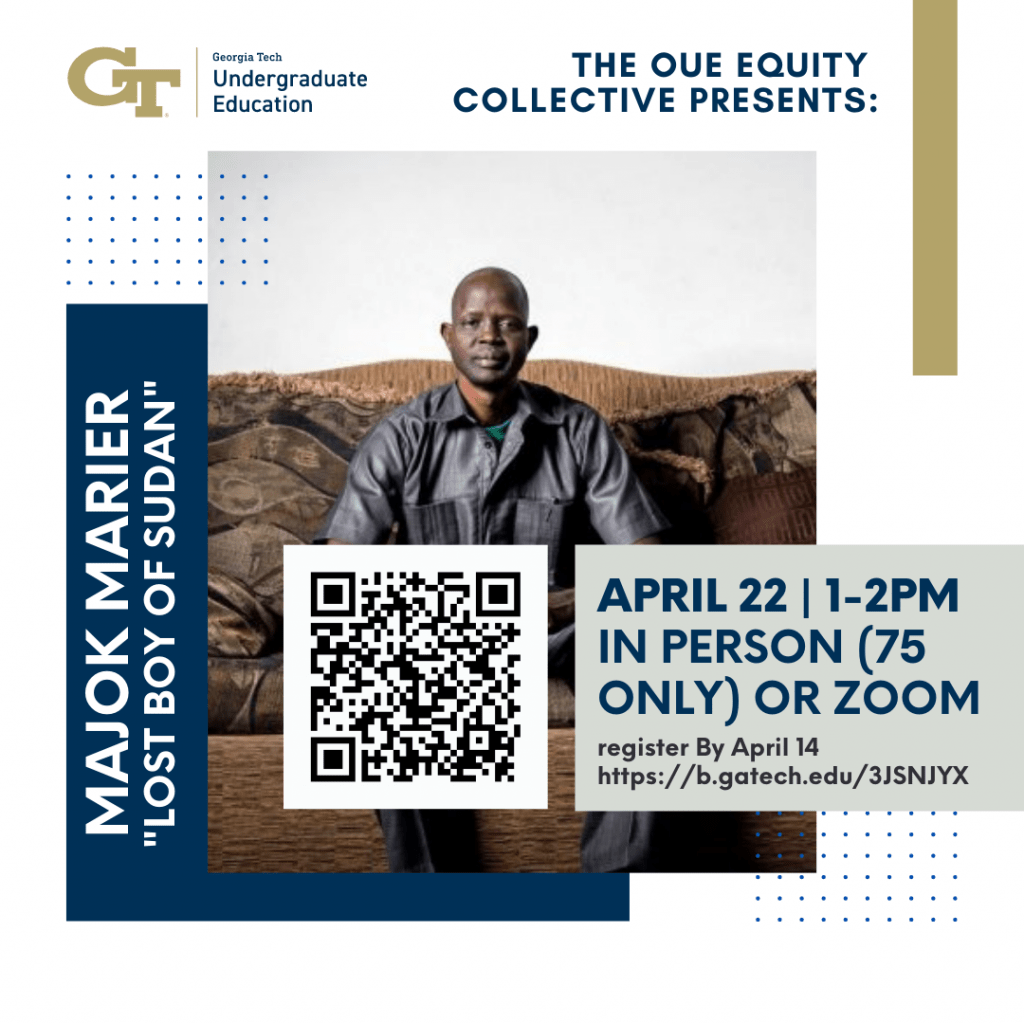The OUE Equity Collective invites all students, faculty, and staff to hear from Sudanese Civil War refugee, Majok Marier, on April 22 from 1-2 p.m. Majok, one of the thousands of children known as the “Lost Boys and Girls of Sudan,” will talk about his experiences in 1983 escaping the second Sudanese Civil War and his non-profit organization, Wells for Hope for South Sudan. Wells for Hope has worked to bring water wells to villages near Rumbek, South Sudan – his home – over the past several years. Register here.
Questions? Susan Belmonte, sbelmonte@gatech.edu
About Majok Merier:
In 1983, the Second Sudanese Civil war (1983-2005) broke out. Majok Marier was seven when he fled soldiers attacking his village. Along with thousands of other children, who would become known as the Lost Boys and Girls of Sudan, Majok trekked across Sudan to Ethiopia, arriving at Pinyudo Refugee Camp in 1998.
In 1991, the Ethiopian government was overthrown, and Sudanese refugees had to flee again. Majok eventually arrived in the Kakuma Refugee Camp in Kenya in 1992. There for nine years, Majok learned English and became a Catholic. In 2001, he was able to come to the United States and settled in Clarkston, GA along with many others who had survived years of hardship and were still living in Kakuma. Majok eventually found work as a plumber’s assistant.
South Sudan gained independence in 2011, and when his sister died in childbirth back home, Majok decided to do something to create better access to medical care for South Sudanese villages. Realizing that the first step to better medical care was clean water, Majok, his fellow Lost Boys, and many concerned friends created a non-profit organization, Wells for Hope for South Sudan, to bring water wells to villages near Rumbek, South Sudan. There, women and children walk 8-12 miles roundtrip every day to bring back clean water for their families. Majok now has a wife and children of his own in Rumbek and has been working to build health clinics in addition to the six wells that have been built since 2015. Millions of people across Africa die each year from diseases caused by unsafe water supplies.

